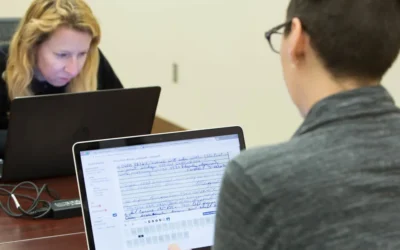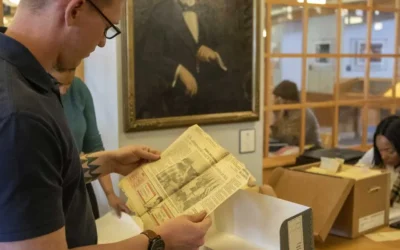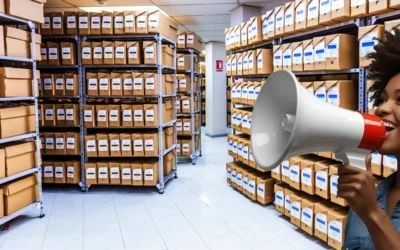Investing in Archival Digital Projects
Margot Note
Many archival repositories have invested in digitization projects to enhance access to their collections.
Archives have been particularly interested in infrastructure projects for several years. Repositories have also participated in collective efforts to test and disseminate tools, procedures, and methodologies.
Understanding Digital Assets
Organizations are often interested in monitoring the processes of digitization projects to conduct cost-benefit analyses. The experience gained by managing projects helps organizations understand the investment in creating, maintaining, and delivering digital collections. In addition, experience produces tangible benefits, including distributing procedures and guidelines for use by the institution, integrating new systems with existing catalogs and databases, and recovering space. Other benefits include establishing relationships with partners, facilitating public relations and fundraising, and raising revenue. Still more returns on investment include greater efficiency, opportunity costs, increased institutional prestige, staff training and expertise, and improved morale.
With planning, it is often possible to coordinate the digitization of a collection with other activities. One such activity is combining the rehousing or cataloging of a collection with its digitization. This can save time and resources and reduce the handling that a collection experiences. As a result, digitization, integrated with other activities, has an inherently reduced cost and, therefore, a higher return on investment.
An expanded collection of digital files requires storage; more files mean larger storage needs. In addition, a more extensive digital collection implies more traffic to an institution’s website. Handling the increased bandwidth of online visitors may require upgraded servers or a more expensive website hosting plan. In addition, those visitors may require more sophisticated tools for online collection. Adding such tools to a system or switching to a more sophisticated one can be a lengthy and expensive process.
Investing in a CMS
A collections management system (CMS) is a physical and intellectual system for managing and accessing digital assets, providing storage, arrangement, and management of assets for access and preservation. Collections management systems optimize workflows by providing structure and tracking project statuses. In addition, the ability to assemble collections by likeness and size increases the efficiency of the digitization program and enhances the conversion of collections into digital files.
How archivists choose to provide access to their digital collections depends on four factors: functionality, community, support, and cost. Functionality is essential in choosing a system for the project because a platform that does not do what the archivists need it to do complicates the project. They need a platform that allows them to focus on preparing and entering the data, not learning how to navigate through the system or determining workarounds for tasks. Archivists find that some platforms work better than others, depending on the data types. In other words, some platforms work very well with some data types but less well with others. Ideally, archivists should seek organizations that have worked with similar data and learn about their chosen platforms.
Tapping into the Community
When deciding on a system, look at the user community to see if it fits the project. For example, suppose the community is in a related field. In that case, it is easier for archivists to reach out to others when they have questions or seek advice.
Whatever system the repository selects, it is essential to have support available. For example, if the skills required for the platform are beyond the repository’s scope of knowledge, archivists may need more hands-on support. In addition, a less complicated system may be wise for organizations with limited resources.
Finally, before deciding, ensure an accurate estimate of the costs, including hosting, configuration, and ongoing maintenance fees. Archivists may wish to contact other institutions using the platforms and see how these options work.
Margot Note
If you’re interested in this topic and eager to learn more, please join us for “Digitize Your Collections: Access”, the sixth in Margot Note’s latest free webinar series, on Wednesday, June 28, 2023 at 11 a.m. Pacific, 2 p.m. Eastern. (Can’t make it? Register anyway and we’ll send you a link to the recording and slides afterwards). Register now or call 604-278-6717.
Never miss another post. Subscribe today!
Similar Posts
Collaborative Archival Relationships
Collaborative projects are instrumental in showcasing how archival collections can benefit various organizational departments.
Informational, Evidential, and Intrinsic Values within Archives
Archives provide authentic, reliable information and hold values that reflect their functions and uses; informational, evidential, and intrinsic.
A Sustainable Archives
Archivists prioritize sustainable practices and policies, rooting their work in ethics of care, often preferring digital processing and preservation
Archival Branding and PR Strategies
Archivists who adopt branding and PR strategies both safeguard historical treasures and contribute to their organizations’ evolution.




Leave a Comment
Comments are reviewed and must adhere to our comments policy.
0 Comments